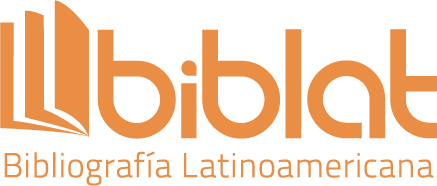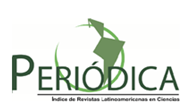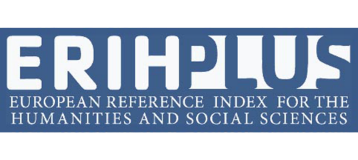La argumentación y su rol en el aprendizaje de la ciencia
Palabras clave:
Argumento, aprendizaje, ciencia, educación, social.Resumen
La argumentación puede asumirse como una práctica social en donde se confrontan ideas y se alcanzan conclusiones. Al ser una práctica discursiva y social, el uso de argumentos está claramente presente en distintos escenarios de la actividad humana como el derecho o la política; sin embargo, su presencia en escenarios como la ciencia y la educación ha sido reconocida de forma relativamente reciente. Este artículo se desprende de la investigación: “Argumentación y aprendizaje de la ciencia”, cuyo propósito fue evaluar la calidad de los argumentos de los estudiantes cuando se implementaba un programa pedagógico innovador basado en la argumentación como herramienta para potenciar habilidades científicas en los niños; por tanto, este documento se centra especialmente en analizar la relación entre la argumentación y el aprendizaje de la ciencia a nivel escolar, relación que diversos investigadores han señalado como central en la adquisición y construcción de nuevo conocimiento porque sirve como un medio que acerca a los estudiantes a prácticas que se parecen a las científicas reales. El presente texto enfatiza por un lado la argumentación como fenómeno social y por otro, evidencia la importancia de incorporar la argumentación en las prácticas pedagógicas científicas especialmente a nivel escolar. En este sentido una transformación educativa hacia la argumentación implica una transformación de las prácticas sociales que subyacen a la escuela, y por lo tanto, de las prácticas pedagógicas en un nivel profundo y no simplemente instruccional.Descargas
Los datos de descarga aún no están disponibles.
Referencias
Andriessen, J. & Baker, M. (2006). Arguing to learn. En K. Sawyer. (Ed.), Handbook of the learning
sciences (pp. 439-461). Cambridge: Cambridge University Press.
Bokus, B. & Garstka, T. (2009). Toward a shared metaphoric meaning in children’s discourse: the
role of argumentation. Polish Psychological Bulletin, 40(4), 193-203.
Bricker, L. A. (2009). A sociocultural historical examination of youth argumentation across the settings of their
lives: Implications for science education. (Tesis doctoral). University of Washington, Seattle,
United States of America.
Chin, Ch. & Osborne, J. (2010). Supporting argumentation through students’ questions: Case studies
in science classrooms. Journal of the Learning Sciences, 19(2), 230-284.
Clarck, D. & Sampson, V. (2007). Personally Seeded Discussions to Scaffold Online Argumentation. International
Journal of Science Education, 29(3), 253-277.
Cross, D., Taasoobshirazi, G., Hendricks, S. & Hickey, D. (2008). Argumentation: A strategy for improving
achievement and revealing scientific identities. International Journal of Science Education, 30(6), 837- 861.
Erduran, S. & Jiménez, M. P. (2007). Argumentation in science education. Perspectives from classroom-based research.
London: Springer Netherlands.
Evagorou, M. & Avraamidou, L. (2008). Technology in support of argument construction in school science.
Educational Media International, 45(1), 33-45.
Gillies, R. & Khan, A. (2009). Promoting reasoned argumentation, problem-solving and learning during
small-group work. Cambridge Journal of Education, 39(1), 7-27.
Gutierrez, M. & Correa, M. (2008). Argumentación y concepciones implícitas sobre física: Un análisis pragmadialéctico.
Acta Colombiana de Psicología, 11(1), 55-63.
Iordanou, K. (2010). Developing argument skills across scientific and social domains. Journal of Cognition and
Development, 11(3), 293-327.
Kuhn, D. (2010). Teaching and learning science as argument. Science Education, 94(5), 810-824.
Larson, A., Britt, M.A. & Kurby, C. (2009). Improving students’ evaluation of informal arguments. The Journal
of Experimental Education, 77(4), 339-366.
Lave, J. & Wenger, E. (1991). Situated Learning. Legitimate peripheral participation. New York: Cambridge University
Press.
Leitão, S. (2007). Argumentação e desenvolvimento do pensamento reflexivo. Psicología: Reflexão e Crítica,
20(3), 454-462.
Muller, N., Perret, A., Tartas, V. & Iannaccone, A. (2009). Psychosocial processes in argumentation. En
N. Muller & A. N. Perret. (Eds.), Argumentation and education: Theoretical foundations and practices
(pp. 67- 90). New York: Springer.
Nussbaum, E., Sinatra, G. M. & Poliquin, A. (2008). Role of epistemic beliefs and scientific argumentation
in science learning. International Journal of Science Education, 30(15), 1977-1999.
Okada, A. & Buckingham, S. (2008). Evidence-based dialogue maps as a research tool to investigate the
quality of school pupils’ scientific argumentation. International Journal of Research & Method in
Education, 31(3), 291-315.
Osborne, J., MacPherson, A., Patersson, A. & Szu, E. (2012).Chapter 1 Introduction. En M. Khine. (Ed.),
Perspectives on scientific argumentation: Theory, practice and research (pp. 3-17). New York: Springer.
Pera, M. (1994). The discourses of science. Chicago: University of Chicago Press.
Posada, J. (2013). Prácticas argumentativas en el aprendizaje de la ciencia. (Tesis de maestría). Universidad de los
Andes, Bogotá.
Ravenscroft, A. & McAlister, S. (2008). Investigating and promoting educational argumentation: towards
new digital practices. International Journal of Research & Method in Education, 31(3), 317-335.
Rodríguez, H. (2008). Cosas de niñas debe permitirse en el colegio: Análisis de un caso de argumentación infantil.
(Tesis de pregrado). Universidad Nacional de Colombia, Bogotá.
Rodríguez, L. (2004). El Modelo argumentativo de Toulmin en la escritura de artículos de investigación educativa.
Recuperado de http://www.revista.unam.mx/vol.5/num1/art2/art2.htm
Sadler, T. (2009). Situated learning in science education: socio-scientific issues as contexts for practice.
Studies in Science Education, 45(1), 1-42.
Sadler, T. (2011). Situating Socio-scientific issues in classrooms as a means of achieving goals of
science education. En T. Sadler. (Ed.), Socio-scientific issues in the classroom: Teaching, Learning
and Research (pp. 1-9). New York: Springer.
Sampson, V. & Clark, D. B. (2008). Assessment of the ways students generate arguments in science
education: Current perspectives and recommendations for future directions. Science
Education, 92(3), 447-472.
Sánchez, L., González, J. & García, A. (2013). La argumentación en la enseñanza de las ciencias.
Revista Latinoamericana de Estudios Educativos, 9(1), 11-28.
Sandoval, W. A. & Millwood, K. (2008). What Can Argumentation Tell Us About Epistemology?
En S. Erduran & M. P. Jiménez. (Eds.), Argumentation in science education. Perspectives from
Classroom-Based Research (pp. 71-88). London: Springer Netherlands.
Schwarz, B., Neuman, Y., Gil, J. & Ilya, M. (2003). Construction of collective and individual
knowledge in argumentative activity. Journal of the Learning Sciences, 12(2), 219-256.
Schworm, S. & Renkl, A. (2007). Learning argumentation skills through the use of prompts for
self-explaining examples. Journal of Educational Psychology, 99(2), 285-296.
Simon, S. (2008). Using Toulmin’s argument pattern in the evaluation of argumentation in school
science. International Journal of Research & Method in Education, 31(3), 277-289.
Stark, R., Puhl, T. & Krause, U.M. (2009). Improving scientific argumentation skills by a problembased
learning environment: effects of an elaboration tool and relevance of student
characteristics. Evaluation & Research in Education, 22(1), 51-68.
Toulmin, S. (2007). Los usos de la argumentación. Barcelona: Ediciones Península.
Von Aufschnaiter, C., Erduran, S., Osborne, J., & Simon, S. (2008). Arguing to learn and learning
to argue: Case studies of how students’ argumentation relates to their scientific
knowledge. Journal of Research in Science Teaching, 45(1), 101-131.
sciences (pp. 439-461). Cambridge: Cambridge University Press.
Bokus, B. & Garstka, T. (2009). Toward a shared metaphoric meaning in children’s discourse: the
role of argumentation. Polish Psychological Bulletin, 40(4), 193-203.
Bricker, L. A. (2009). A sociocultural historical examination of youth argumentation across the settings of their
lives: Implications for science education. (Tesis doctoral). University of Washington, Seattle,
United States of America.
Chin, Ch. & Osborne, J. (2010). Supporting argumentation through students’ questions: Case studies
in science classrooms. Journal of the Learning Sciences, 19(2), 230-284.
Clarck, D. & Sampson, V. (2007). Personally Seeded Discussions to Scaffold Online Argumentation. International
Journal of Science Education, 29(3), 253-277.
Cross, D., Taasoobshirazi, G., Hendricks, S. & Hickey, D. (2008). Argumentation: A strategy for improving
achievement and revealing scientific identities. International Journal of Science Education, 30(6), 837- 861.
Erduran, S. & Jiménez, M. P. (2007). Argumentation in science education. Perspectives from classroom-based research.
London: Springer Netherlands.
Evagorou, M. & Avraamidou, L. (2008). Technology in support of argument construction in school science.
Educational Media International, 45(1), 33-45.
Gillies, R. & Khan, A. (2009). Promoting reasoned argumentation, problem-solving and learning during
small-group work. Cambridge Journal of Education, 39(1), 7-27.
Gutierrez, M. & Correa, M. (2008). Argumentación y concepciones implícitas sobre física: Un análisis pragmadialéctico.
Acta Colombiana de Psicología, 11(1), 55-63.
Iordanou, K. (2010). Developing argument skills across scientific and social domains. Journal of Cognition and
Development, 11(3), 293-327.
Kuhn, D. (2010). Teaching and learning science as argument. Science Education, 94(5), 810-824.
Larson, A., Britt, M.A. & Kurby, C. (2009). Improving students’ evaluation of informal arguments. The Journal
of Experimental Education, 77(4), 339-366.
Lave, J. & Wenger, E. (1991). Situated Learning. Legitimate peripheral participation. New York: Cambridge University
Press.
Leitão, S. (2007). Argumentação e desenvolvimento do pensamento reflexivo. Psicología: Reflexão e Crítica,
20(3), 454-462.
Muller, N., Perret, A., Tartas, V. & Iannaccone, A. (2009). Psychosocial processes in argumentation. En
N. Muller & A. N. Perret. (Eds.), Argumentation and education: Theoretical foundations and practices
(pp. 67- 90). New York: Springer.
Nussbaum, E., Sinatra, G. M. & Poliquin, A. (2008). Role of epistemic beliefs and scientific argumentation
in science learning. International Journal of Science Education, 30(15), 1977-1999.
Okada, A. & Buckingham, S. (2008). Evidence-based dialogue maps as a research tool to investigate the
quality of school pupils’ scientific argumentation. International Journal of Research & Method in
Education, 31(3), 291-315.
Osborne, J., MacPherson, A., Patersson, A. & Szu, E. (2012).Chapter 1 Introduction. En M. Khine. (Ed.),
Perspectives on scientific argumentation: Theory, practice and research (pp. 3-17). New York: Springer.
Pera, M. (1994). The discourses of science. Chicago: University of Chicago Press.
Posada, J. (2013). Prácticas argumentativas en el aprendizaje de la ciencia. (Tesis de maestría). Universidad de los
Andes, Bogotá.
Ravenscroft, A. & McAlister, S. (2008). Investigating and promoting educational argumentation: towards
new digital practices. International Journal of Research & Method in Education, 31(3), 317-335.
Rodríguez, H. (2008). Cosas de niñas debe permitirse en el colegio: Análisis de un caso de argumentación infantil.
(Tesis de pregrado). Universidad Nacional de Colombia, Bogotá.
Rodríguez, L. (2004). El Modelo argumentativo de Toulmin en la escritura de artículos de investigación educativa.
Recuperado de http://www.revista.unam.mx/vol.5/num1/art2/art2.htm
Sadler, T. (2009). Situated learning in science education: socio-scientific issues as contexts for practice.
Studies in Science Education, 45(1), 1-42.
Sadler, T. (2011). Situating Socio-scientific issues in classrooms as a means of achieving goals of
science education. En T. Sadler. (Ed.), Socio-scientific issues in the classroom: Teaching, Learning
and Research (pp. 1-9). New York: Springer.
Sampson, V. & Clark, D. B. (2008). Assessment of the ways students generate arguments in science
education: Current perspectives and recommendations for future directions. Science
Education, 92(3), 447-472.
Sánchez, L., González, J. & García, A. (2013). La argumentación en la enseñanza de las ciencias.
Revista Latinoamericana de Estudios Educativos, 9(1), 11-28.
Sandoval, W. A. & Millwood, K. (2008). What Can Argumentation Tell Us About Epistemology?
En S. Erduran & M. P. Jiménez. (Eds.), Argumentation in science education. Perspectives from
Classroom-Based Research (pp. 71-88). London: Springer Netherlands.
Schwarz, B., Neuman, Y., Gil, J. & Ilya, M. (2003). Construction of collective and individual
knowledge in argumentative activity. Journal of the Learning Sciences, 12(2), 219-256.
Schworm, S. & Renkl, A. (2007). Learning argumentation skills through the use of prompts for
self-explaining examples. Journal of Educational Psychology, 99(2), 285-296.
Simon, S. (2008). Using Toulmin’s argument pattern in the evaluation of argumentation in school
science. International Journal of Research & Method in Education, 31(3), 277-289.
Stark, R., Puhl, T. & Krause, U.M. (2009). Improving scientific argumentation skills by a problembased
learning environment: effects of an elaboration tool and relevance of student
characteristics. Evaluation & Research in Education, 22(1), 51-68.
Toulmin, S. (2007). Los usos de la argumentación. Barcelona: Ediciones Península.
Von Aufschnaiter, C., Erduran, S., Osborne, J., & Simon, S. (2008). Arguing to learn and learning
to argue: Case studies of how students’ argumentation relates to their scientific
knowledge. Journal of Research in Science Teaching, 45(1), 101-131.
Descargas
Publicado
2016-03-10
Número
Sección
Reflexiones epistemológicas
Licencia

Esta obra está bajo una Licencia Creative Commons Atribución-NoComercial-
Cómo citar
Posada, J. L. (2016). La argumentación y su rol en el aprendizaje de la ciencia. Tesis Psicológica, 10(1), 146-160. https://revistas.libertadores.edu.co/index.php/TesisPsicologica/article/view/573













